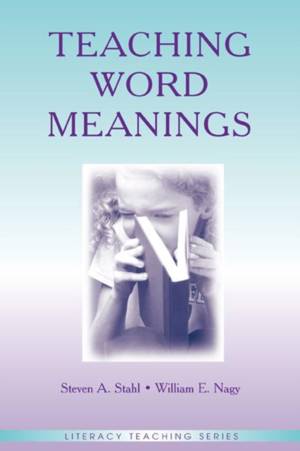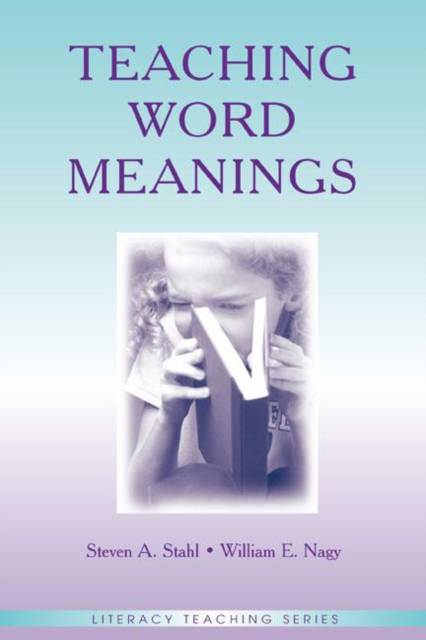
Wil je zeker zijn dat je cadeautjes op tijd onder de kerstboom liggen? Onze winkels ontvangen jou met open armen. Nu met extra openingsuren op zondag!
- Afhalen na 1 uur in een winkel met voorraad
- Gratis thuislevering in België vanaf € 30
- Ruim aanbod met 7 miljoen producten
Wil je zeker zijn dat je cadeautjes op tijd onder de kerstboom liggen? Onze winkels ontvangen jou met open armen. Nu met extra openingsuren op zondag!
- Afhalen na 1 uur in een winkel met voorraad
- Gratis thuislevering in België vanaf € 30
- Ruim aanbod met 7 miljoen producten
Zoeken
€ 182,45
+ 364 punten
Uitvoering
Omschrijving
Learning new words is foundational to success in school and life. Researchers have known for years that how many word meanings a student knows is one of the strongest predictors of how well that student will understand text and be able to communicate through writing. This book is about how children learn the meanings of new words (and the concepts they convey) and how teachers can be strategic in deciding which words to teach, how to teach them, and which words not to teach at all. This book offers a comprehensive approach to vocabulary instruction. It offers not just practical classroom activities for teaching words (though plenty of those are included), but ways that teachers can make the entire curriculum more effective at promoting students' vocabulary growth. It covers the 'why to' and 'when to' as well as the 'how to' of teaching word meanings. Key features of this exciting new book include:
*A variety of vocabulary activities. Activities for teaching different kinds of words such as high frequency words, high utility words, and new concepts, are explained and illustrated.
*Guidelines for choosing words. A chart provides a simple framework built around seven basic categories of words that helps teachers decide which words to teach and how to teach them.
*Word learning strategies. Strategies are offered that will help students use context, word parts, and dictionaries more effectively.
*Developing Word Consciousness. Although specific vocabulary instruction is fully covered, the primary goal of this book is to develop students' independent interest in words and their motivation to learn them.
*Integrated Vocabulary Instruction. Teachers are encouraged to improve the reading vocabularies of their students by looking for opportunities to integrate vocabulary learning into activities that are undertaken for other purposes.
*A variety of vocabulary activities. Activities for teaching different kinds of words such as high frequency words, high utility words, and new concepts, are explained and illustrated.
*Guidelines for choosing words. A chart provides a simple framework built around seven basic categories of words that helps teachers decide which words to teach and how to teach them.
*Word learning strategies. Strategies are offered that will help students use context, word parts, and dictionaries more effectively.
*Developing Word Consciousness. Although specific vocabulary instruction is fully covered, the primary goal of this book is to develop students' independent interest in words and their motivation to learn them.
*Integrated Vocabulary Instruction. Teachers are encouraged to improve the reading vocabularies of their students by looking for opportunities to integrate vocabulary learning into activities that are undertaken for other purposes.
Specificaties
Betrokkenen
- Auteur(s):
- Uitgeverij:
Inhoud
- Aantal bladzijden:
- 230
- Taal:
- Engels
- Reeks:
Eigenschappen
- Productcode (EAN):
- 9780805843637
- Verschijningsdatum:
- 26/09/2005
- Uitvoering:
- Hardcover
- Formaat:
- Genaaid
- Afmetingen:
- 161 mm x 236 mm
- Gewicht:
- 476 g

Alleen bij Standaard Boekhandel
+ 364 punten op je klantenkaart van Standaard Boekhandel
Beoordelingen
We publiceren alleen reviews die voldoen aan de voorwaarden voor reviews. Bekijk onze voorwaarden voor reviews.











